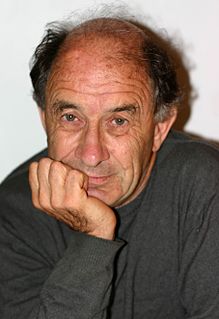A Quote by David Hilbert
Every kind of science, if it has only reached a certain degree of maturity, automatically becomes a part of mathematics.
Related Quotes
Mathematics has two faces: it is the rigorous science of Euclid, but it is also something else. Mathematics presented in the Euclidean way appears as a systematic, deductive science; but mathematics in the making appears as an experimental, inductive science. Both aspects are as old as the science of mathematics itself.
Mathematics never reveals man to the degree, never expresses him in the way, that any other field of human endeavour does: the extent of the negation of man's corporeal self that mathematics achieves cannot be compared with anything. Whoever is interested in this subject I refer to my articles. Here I will say only that the world injected its patterns into human language at the very inception of that language; mathematics sleeps in every utterance, and can only be discovered, never invented.
The subject for which I am asking your attention deals with the foundations of mathematics. To understand the development of the opposing theories existing in this field one must first gain a clear understnding of the concept "science"; for it is as a part of science that mathematics originally took its place in human thought.
When what has been created in time according to the temporal order has reached maturity, it ceases from natural growth. But when what has been brought about by the knowledge of God through the practice of the virtues has reached maturity, it starts to grow anew. For the end of one stage constitutes the starting point of the next.
...mathematics is distinguished from all other sciences except only ethics, in standing in no need of ethics. Every other science, even logic, especially in its early stages, is in danger of evaporating into airy nothingness, degenerating, as the Germans say, into an arachnoid film, spun from the stuff that dreams are made of. There is no such danger for pure mathematics; for that is precisely what mathematics ought to be.
If you ask ... the man in the street ... the human significance of mathematics, the answer of the world will be, that mathematics has given mankind a metrical and computatory art essential to the effective conduct of daily life, that mathematics admits of countless applications in engineering and the natural sciences, and finally that mathematics is a most excellent instrumentality for giving mental discipline... [A mathematician will add] that mathematics is the exact science, the science of exact thought or of rigorous thinking.
Science is rooted in the will to truth. With the will to truth it stands or falls. Lower the standard even slightly and science becomes diseased at the core. Not only science, but man. The will to truth, pure and unadulterated, is among the essential conditions of his existence; if the standard is compromised he easily becomes a kind of tragic caricature of himself.






































